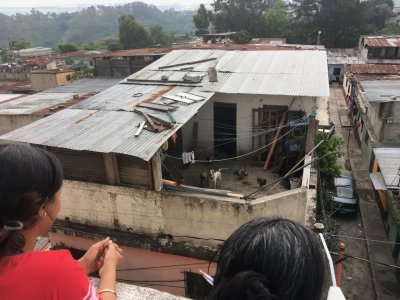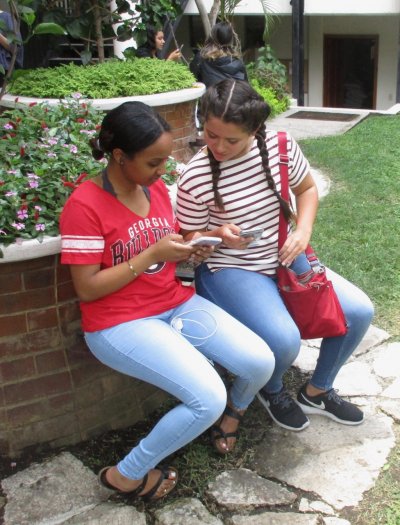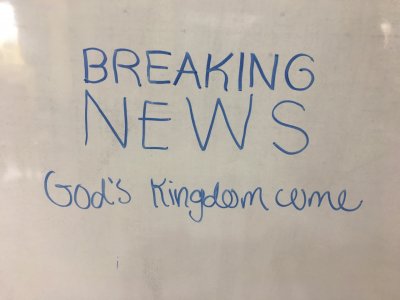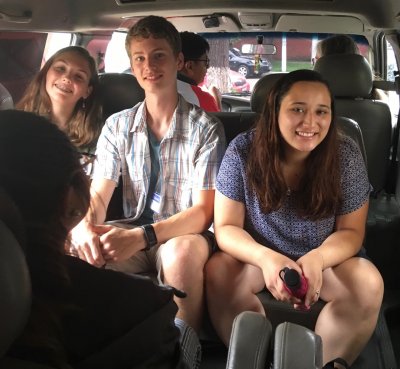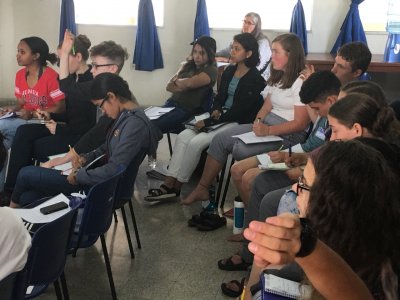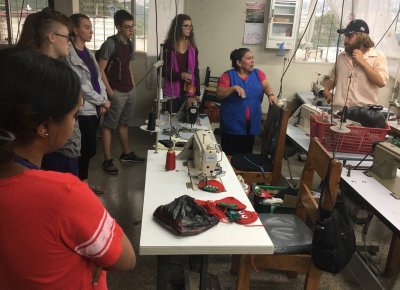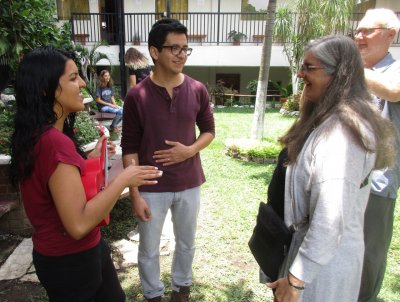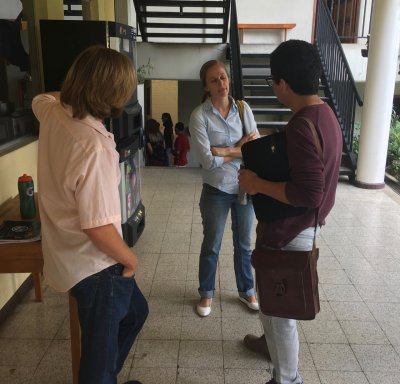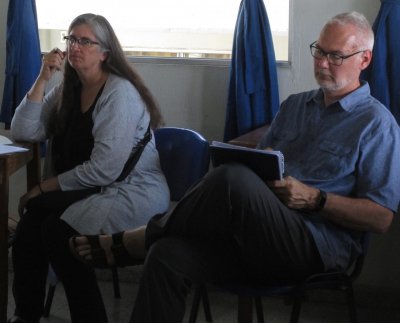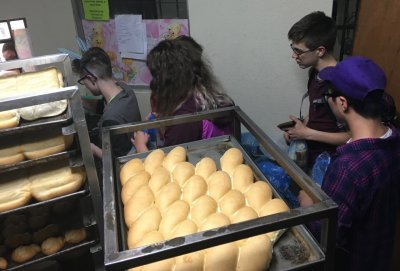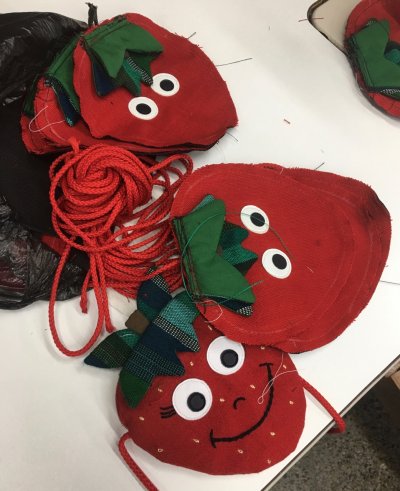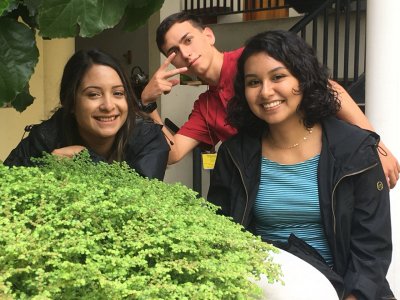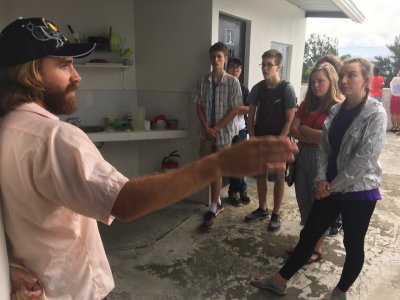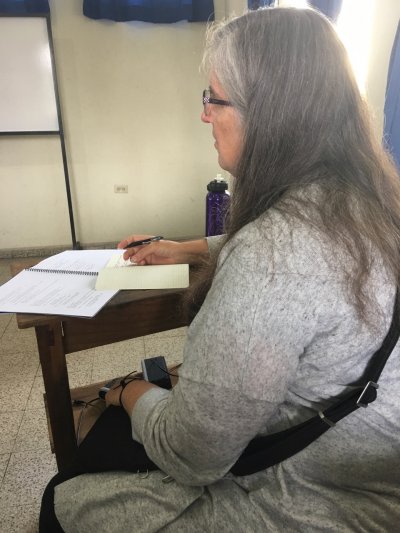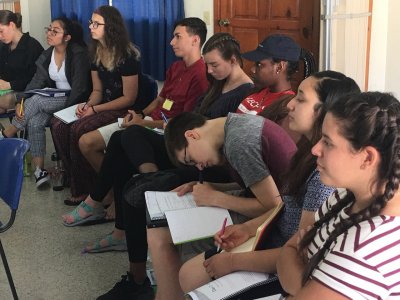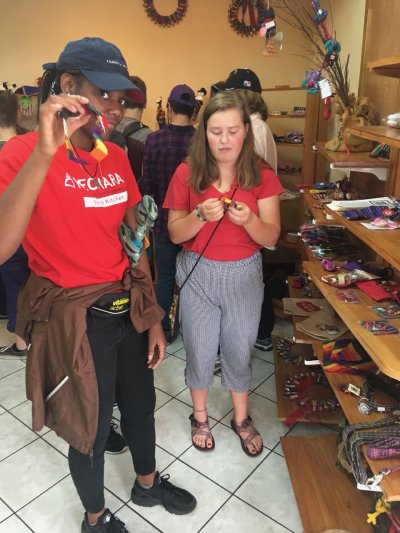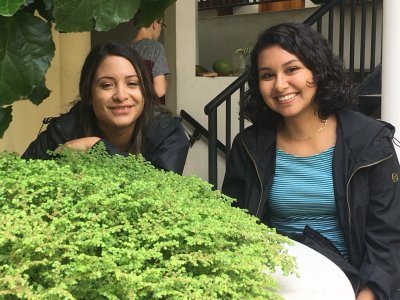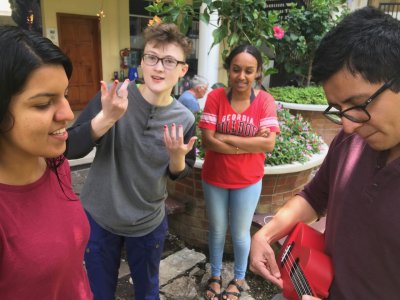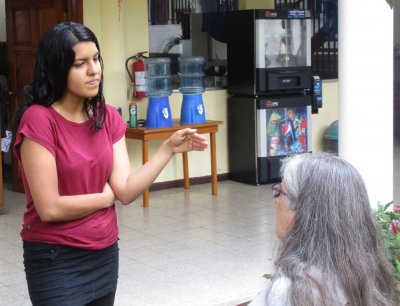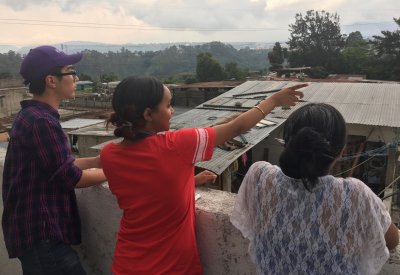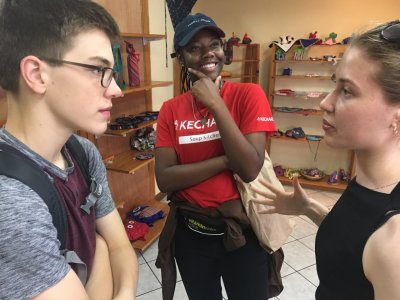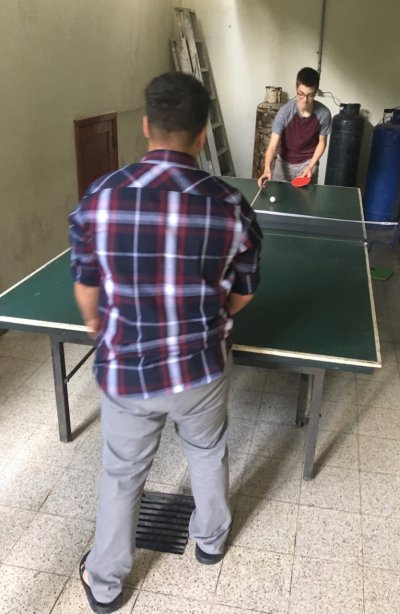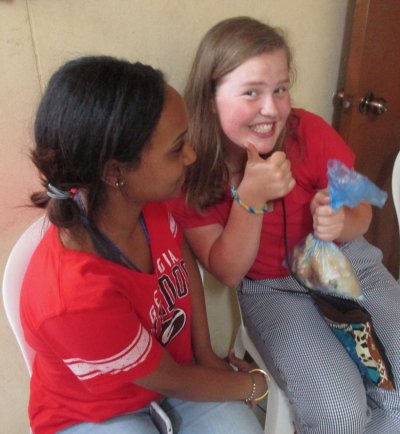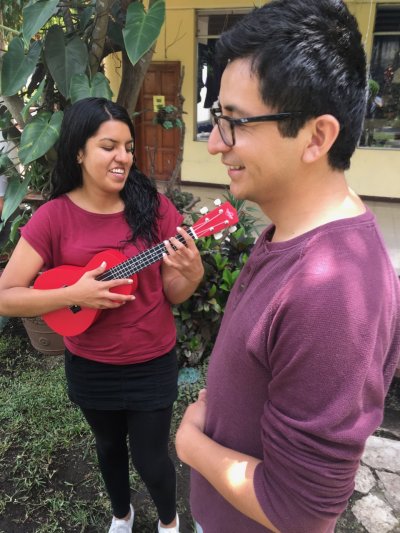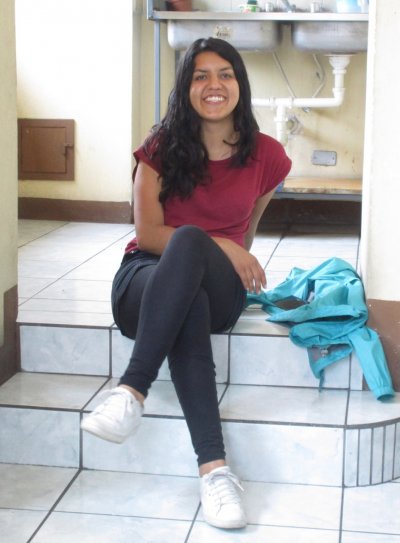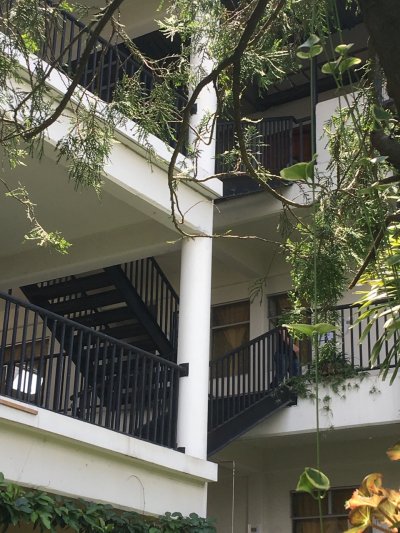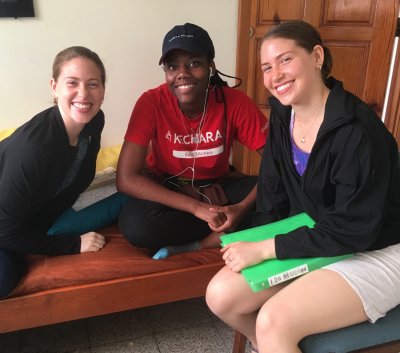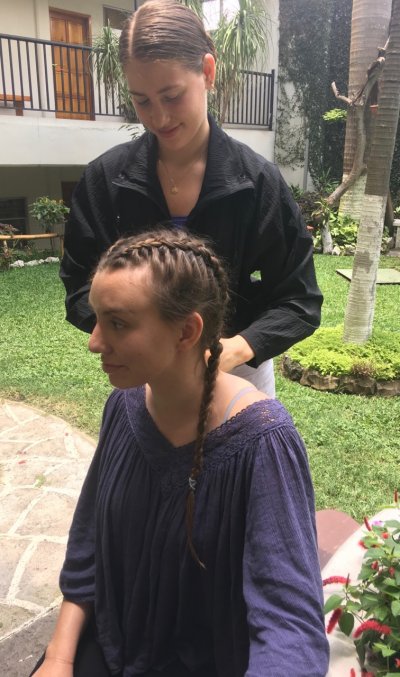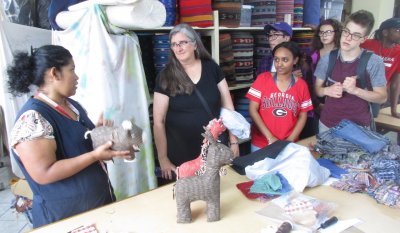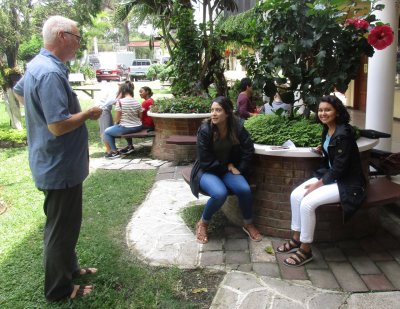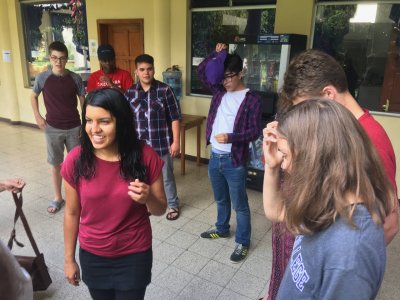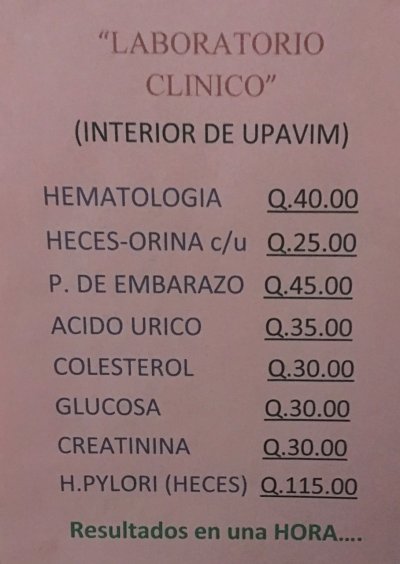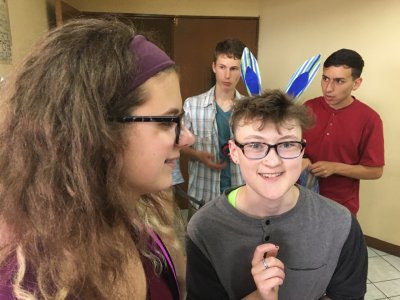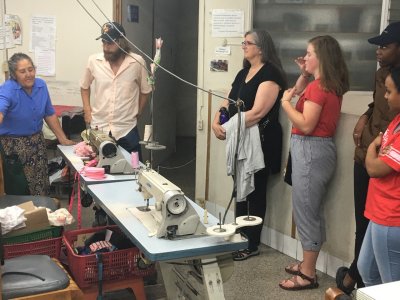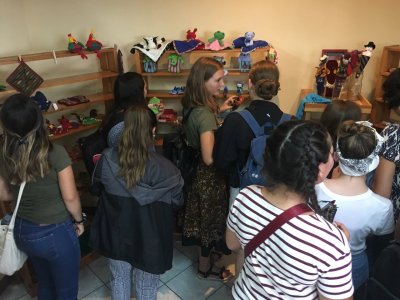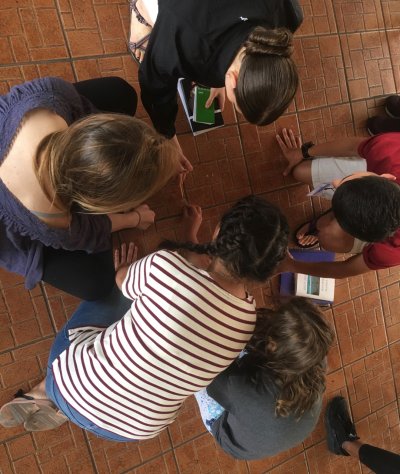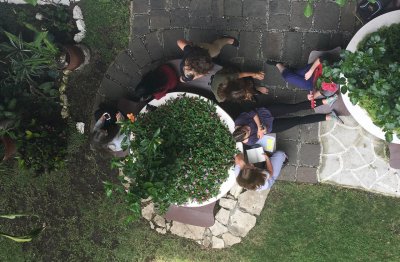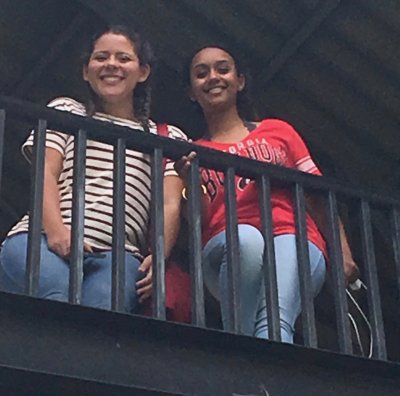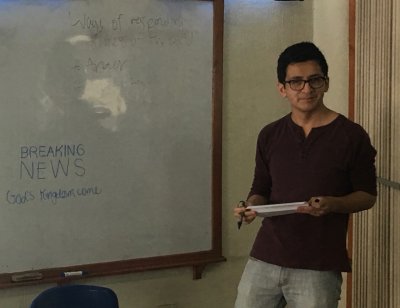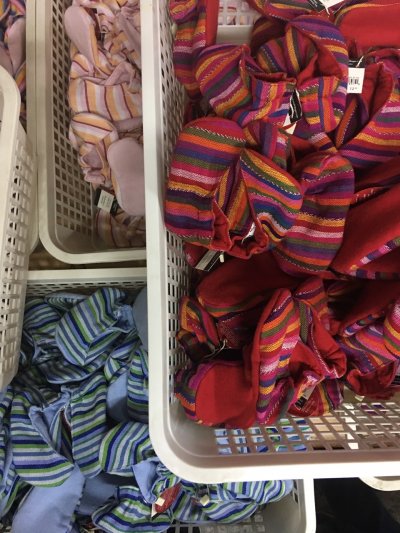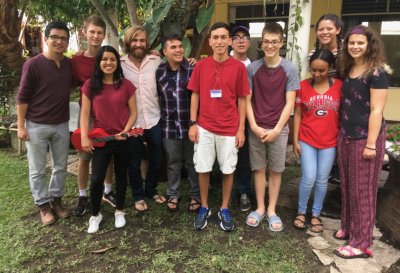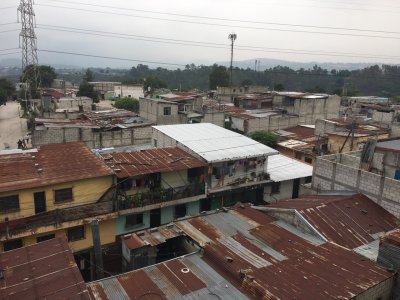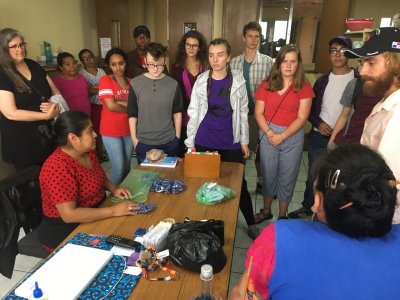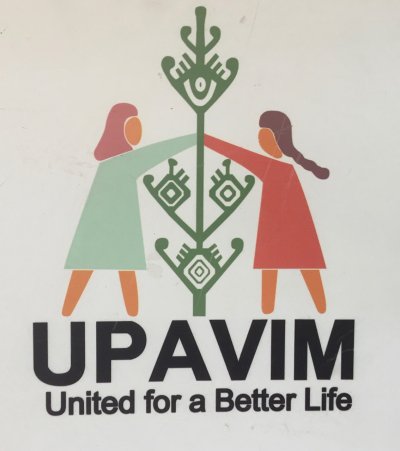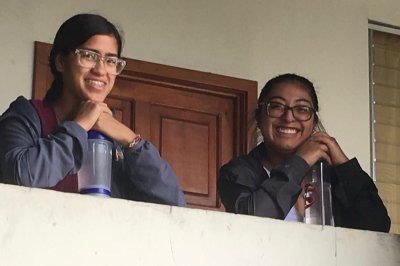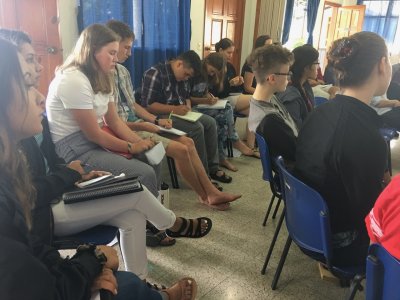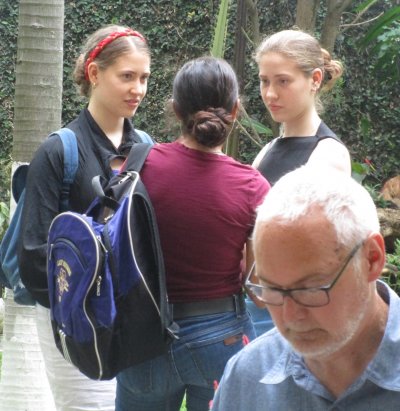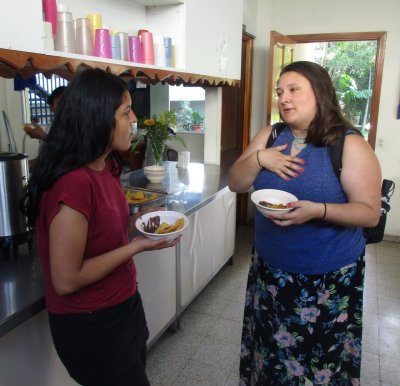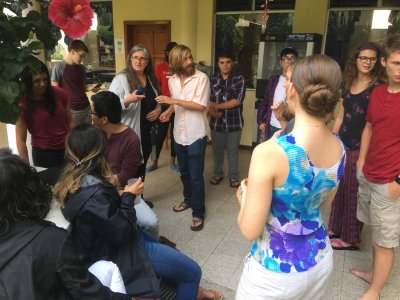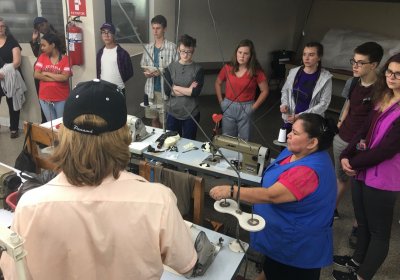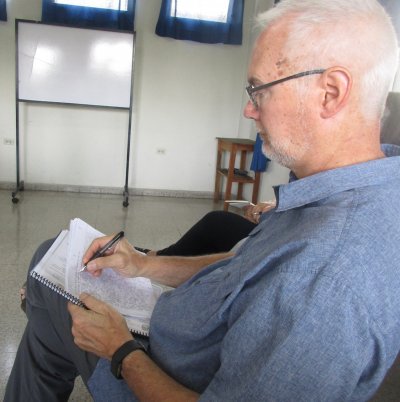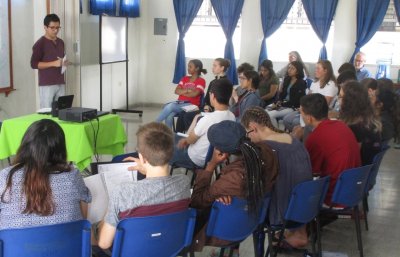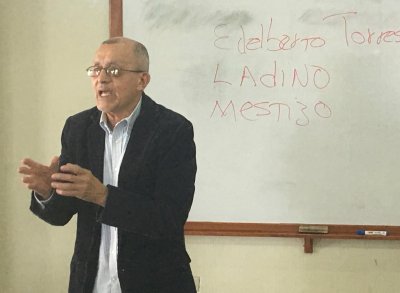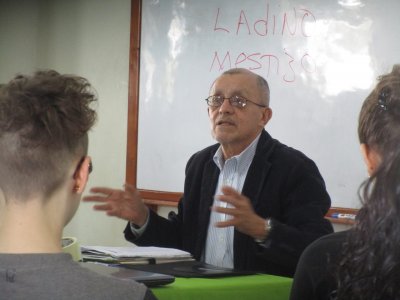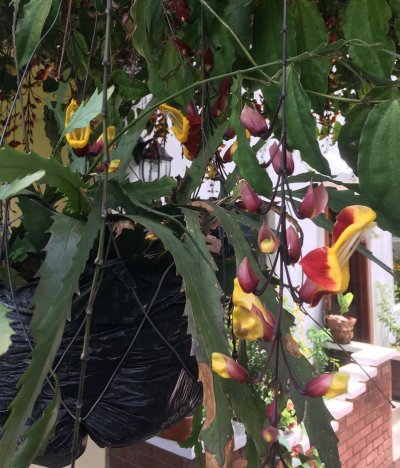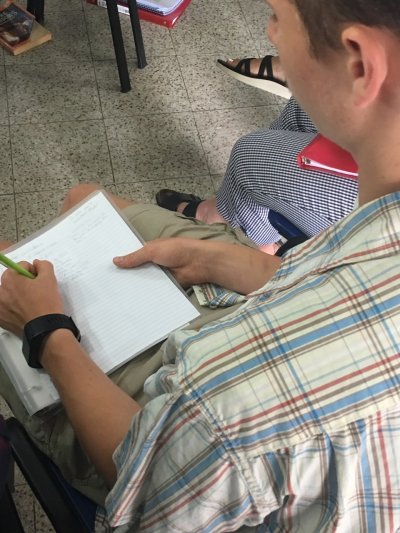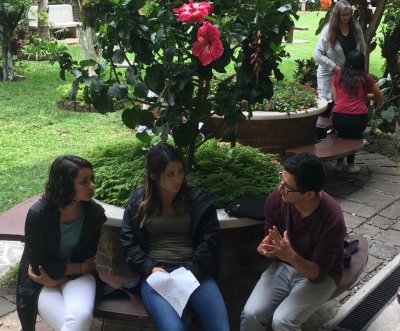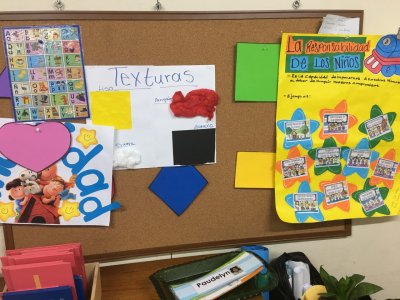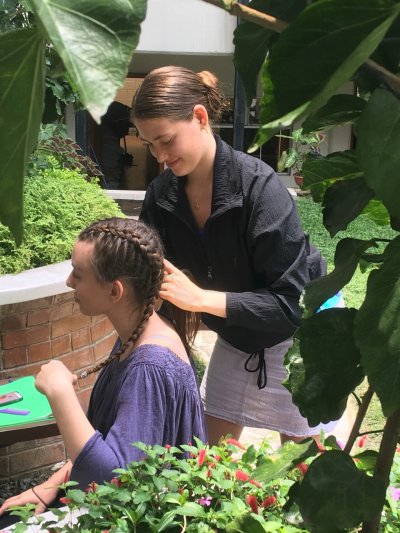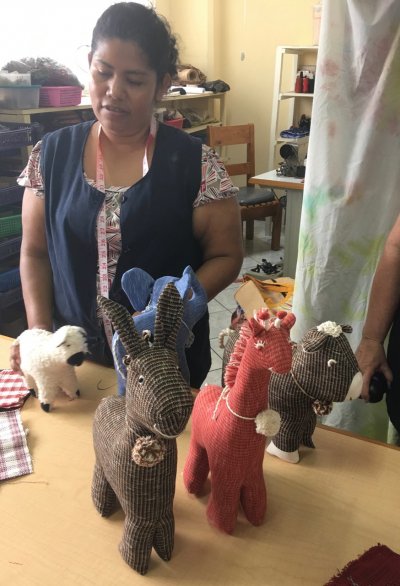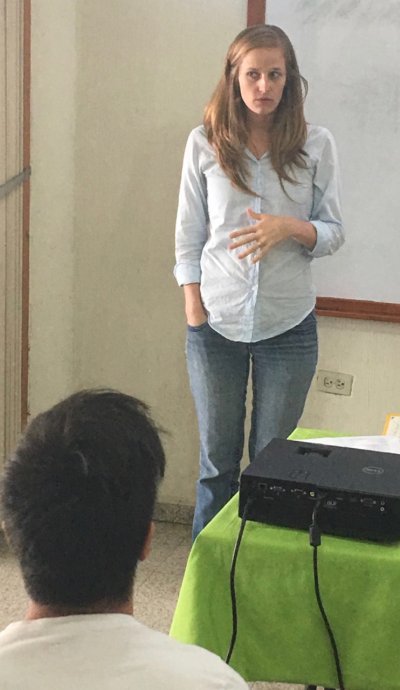Moving Beyond Indifference, and UPAVIM
Today turned out a bit differently than originally planned, partly because a major march was happening in the downtown area today, finishing with a protest in the National Plaza — the precise area where we planned to go for an afternoon field trip. We revised the afternoon schedule and instead visited UPAVIM, a quite impressive women’s cooperative. The cooperative includes a Montessori School, fabric-crafting fair trade shop, medical clinic and bakery.
Students seemed fully engaged with the visit, and enjoyed interacting with a set of identical triplets children at the school, eating excessive amounts of incredible breads, and purchasing goods from UPAVIM’s fair trade shop. UPAVIM was putting together a major order of baby booties for Ten Thousand Villages; in Goshen, both Ten Thousand Villages and Found carry items made by women in the cooperative.
The morning began with a lecture on Guatemala’s history by Hector Casteneda, a pastor and theologian who lectures at SEMILLA and other seminaries and universities. Hector’s father was in the Guatemalan Congress during the 1944 to 1954 period of Guatemala’s history referred to as the “Ten Years of Spring,” with democratically elected leaders, major economic growth and distribution of wealth in the country. The period ended when the U.S. helped overthrow President Jacobo Arbenz, arguing that he was a Communist. Our lecturer Hector’s father had been among those members of Congress urging land reform, which included redistributing some of the arable land from the 10 percent of families who owned 86 percent of the land.
In the U.S., John Foster Dulles had been appointed Secretary of State, and his brother Allen Dulles was head of the CIA. Both were major shareholders in the United Fruit Company, which owned a significant chunk of Guatemalan land, and both wanted the land distribution stopped. Because of those self-interests and the power they held in the U.S. government, they were able to help engineer the overthrow, which led to six years of chaos and then 36 years of tragic civil war in Guatemala.
After that lecture, Israel took us back into our study of “Youth and the Fullness of Humanity.” Israel talked about how some teens want to do what they can to change the world, and others simply want to play Nintendo. Israel called us to “move into the mess.” Both Israel and his spouse, Rachel, who also was trained in sociology, spoke about “moving past indifference,” and the importance of truly understanding what is going on in the world so we can know how to faithfully respond.
We’re finishing the evening by watching “Coco,” a 2017 animated film about the Day of the Dead. Some students are still finishing up today’s journal — a regular requirement — but that will need to wait until after the film.
(Photos for tonight’s blog were taken by Isaiah and Keith.)
